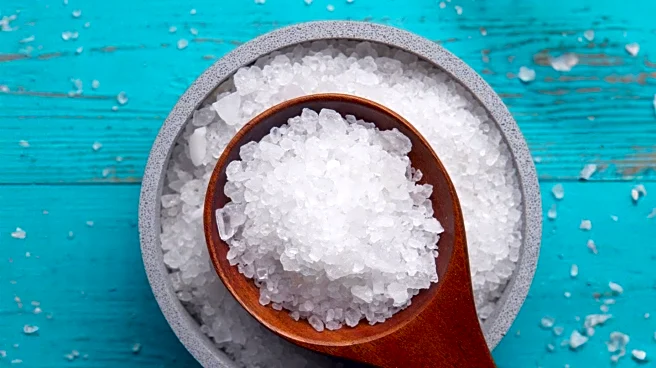What's Happening?
Health professionals are raising concerns about the increasing popularity of flaky sea salts, such as pink Himalayan salt, which may contribute to iodine deficiencies. These salts are often chosen for their texture and perceived health benefits, but they lack the iodine content found in iodized table salt. Iodine is crucial for thyroid health, affecting metabolism, growth, and reproductive health. The shift away from iodized salt, which is fortified to meet daily iodine requirements, could lead to health issues like hypothyroidism and goiter. Experts advise balancing the use of trendy salts with iodized options to ensure adequate iodine intake.
Why It's Important?
The trend towards natural and less processed foods, including flaky sea salts, reflects broader consumer
preferences for perceived healthier options. However, this shift poses risks of iodine deficiency, which can have significant health implications. Iodine is essential for thyroid function, and its deficiency can lead to serious health problems. The advice from health professionals highlights the need for public awareness about the nutritional content of alternative salts and the importance of maintaining a balanced diet. This issue underscores the complexities of dietary choices and the potential unintended consequences of popular health trends.
















